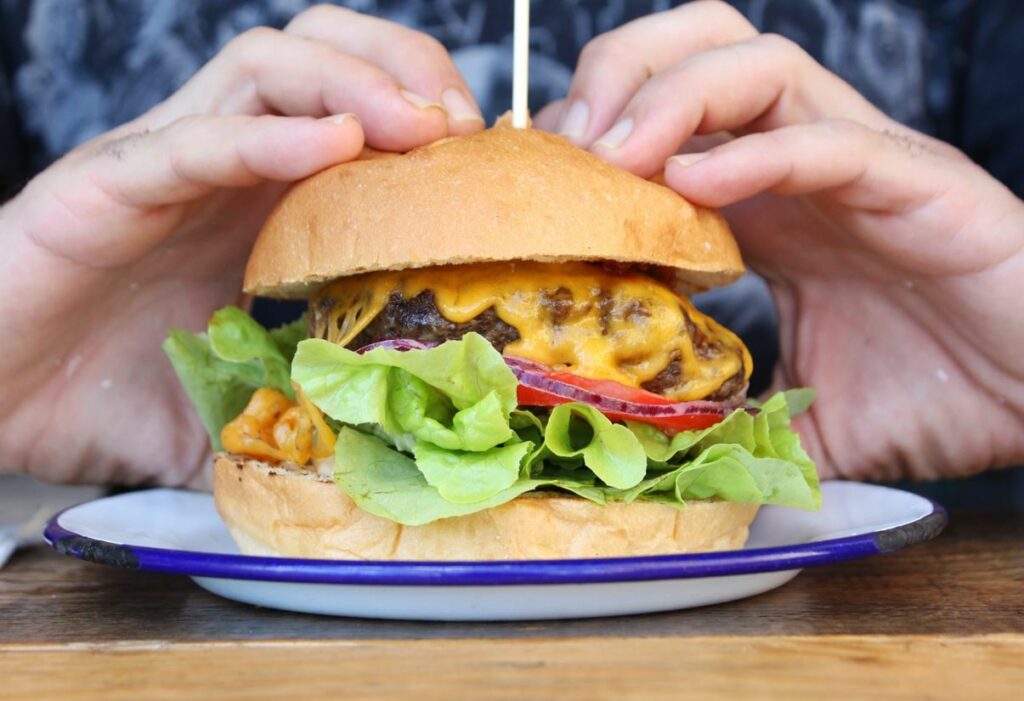In our article today, we will discuss one of the commonest eating and feeding disorders, termed as Binge eating disorders. This condition affects about 2% of people worldwide and may cause additional health issues such as diabetes, high cholesterol, and other health issues linked to diet.
As eating and feeding disorders are not just about food and thus are recognized as psychiatric disorders. Let us dive into the symptoms, Causes, and health risks related to Binge eating disorder to acknowledge how to get help to overcome it.
What Is Binge Eating Disorder

Binge eating disorder is a mental illness that is characterized by regular episodes of eating an excessive amount of food in rapid space of time or maybe more of prolonged grazing. These episodes can make a person feel uncontrollable, stressed, and chaotic.
During the episodes of Binge eating, a person may not be hungry but continue to eat beyond the point of feeling full. It is pervasive for people to binge eat in secret or alone. The person might feel relief during a binge but experience shame, guilt, or low mood after a binge.
What Are The Symptoms of Binge Eating Disorder?

Healthcare professionals diagnose Binge eating disorder if three or more of the following signs and symptoms are present:
- Eating past the point, feeling uncomfortably full.
- Inability to stop eating once started eating.
- Hiding food to eat later
- Eating more rapidly than normal.
- Eating large amount even if not hungry.
- Eating alone or in secret.
- Feeling guilty or discussed after a binge.
- Eating throughout the day without planned meals.
- No matter how much one eats, the person is never satisfied.
- Feeling tensed or stress and relived only after eating.
- Those with Binge eating disorders experience extreme unhappiness or are distressed about their overeating, weight, and body shape.
The severity of Binge eating disorder is determined by how often the binging episode occurs during a week.
What Causes Binge Eating Disorder?
The cause behind Binge eating disorder is not known. However, biological factors, genetics, long-term dieting, and psychological issues play their role.
The factors that increase the risk of Binge eating disorder are as follows:
Dieting – It has been found that many people suffering from Binge eating disorders have a history of restricting calories or dieting.
Psychological issues – In most cases of Binge eating disorder, it has been found that the person thinks negatively about themselves and their accomplishments and skills. In addition, depression is found to be strongly linked with binge eating. Loneliness, low self-esteem and body dissatisfaction also contribute to it.
Family history – You are more likely to suffer from binge eating disorder if your sibling or parents have or had an eating disorder.
Biological Abnormalities – Biological abnormalities such as if hypothalamus is not sending the right message about fullness or hunger it may lead to Binge eating disorder. Research have also found that genetic mutations may cause food addiction. Studies have found link between low level of serotonin and compulsive eating.
How To Overcome Binge Eating Disorder?
Here are a few simple ways by which you can overcome binge eating
- Make a mood and food dairy – Make a food and mood diary in which keep the record of the triggers that urge you to binge eat. Write what made you upset that you binge ate, your feelings while eating and after eating to see a pattern emerge. This will help you to identify and tolerate your feelings that trigger binge eating.
- Identification of emotions – When do you binge eat. Is it hopelessness, anger, anxiety, emptiness or shame? After identifying your emotion, try to accept the experience as resistance and avoidance will make negative emotions powerful.
- Do not binge eat to feed your feeling – After analyzing the thoughts going in your mind and exploring what’s going on, realize that your feelings are not your identity and resist the urge to binge to satisfy your emotions. This may be tough initially, but as you stop fighting your feelings, you will be able to control yourself.
- Develop a healthy relationship with your food – Binge eating is a compulsive addiction, and overcoming or recovering any addiction is challenging. Instead of replacing or avoiding it, develop a healthy relationship with your food. Your relationship with your food should be to meet your body’s nutritional needs and not emotional requirements.
- Break the binge eating Cycle – To break the binge eating cycle listen to your body. For example, if you have recently had your meal and have a rumbling stomach, you are not hungry but craving food to satisfy emotional hunger.
- Please get rid of temptations – One likely to overeat unhealthy snacks, junk foods, and desserts, so better avoid temptation and clear your cupboards and fridge of the Favourite food you binge.
- Eat regularly and practice mindful eating – Developing healthy habits also includes eating regularly and not waiting for you to starve if you overeat. Stick to scheduled meal times in later hours of the day. Do not avoid fat in the name of healthy eating because dietary fat keeps you from gaining weight and overeating. Instead, incorporate healthy fats in each significant need to keep you satisfied and full for an extended period. Instead of mindless eating, focus on what you are eating. Enjoy the flavours and texture of your food.
- Do not eat out of boredom – Make sure that when you are bored, instead of snacking, distract yourself; for example, call a friend, read a book, and take a walk.
- Practice a healthy lifestyle – Besides mindful eating, take sound sleep of 7-8 hours and exercise. Practice yoga and meditation, read books, practice your hobbies, drink 9-10 glasses of water every day and spend time with people you love.
Binge eating disorder leads to a variety of emotional, Physical and social issues. It makes you suffer from health issues such as insomnia, stress and you may get suicidal thoughts.
In addition, a person with a Binge eating disorder may experience anxiety, depression, substance abuse and substantial Weight Gain.
Many people with treatment can recover from Binge eating disorders and their unhealthy effects. However, if you want to bring a positive change in yourself, you will have to re-evaluate your relationship with food.









